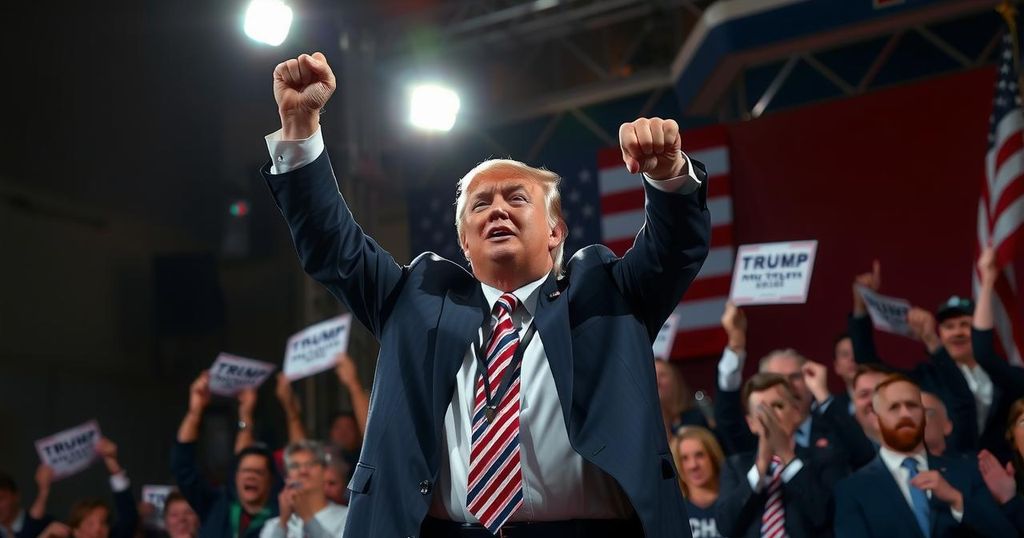World news
AFRICA, AL JAZEERA, ASSOCIATED PRESS, COLLEGE, DONALD TRUMP, ELECTION, ELECTORAL COLLEGE, EUROPE/ASIA, GEORGIA, HARRIS, JOE BIDEN, KAMAL, KAMALA HARRIS, LUCAS, NORTH CAROLINA, POLITICS, PRESIDENTIAL ELECTION 2024, PRESIDENTIAL ELECTIONS, PUTIN, SCOTT LUCAS, TRUMP, U.S. ELECTIONS, UNIVERSITY OF DUBLIN, WISCONSIN
Daniel O'Connor
0 Comments
Donald Trump Elected 47th US President Amidst National Frustrations
Donald Trump has been elected the 47th President of the United States, claiming at least 277 Electoral College votes. His surprising victory over Vice President Kamala Harris reflects deep frustrations among voters, mainly concerning economic issues and foreign policy. Trump’s win signals a potentially turbulent era in domestic governance and international relations.
Donald Trump has secured the position of the 47th President of the United States, having achieved at least 277 Electoral College votes, as reported by The Associated Press. His victory comes as a surprise to many, having initially been projected to engage in a closer race against Vice President Kamala Harris. Trump’s wins in critical battleground states, including Wisconsin, Georgia, North Carolina, and Pennsylvania, solidified his return to the White House after losing the 2020 election. The election outcome reveals deep-seated frustrations among the electorate, exacerbated by economic concerns and dissatisfaction with current leadership. Trump’s campaign effectively capitalized on this sentiment, particularly regarding inflation and America’s foreign policy in relation to Ukraine, Gaza, and Iran. He has positioned himself as a strong opponent of the status quo, promising swift resolutions to geopolitical conflicts, albeit with approaches that raise concerns among international allies regarding potential shifts in foreign policy. The international reaction to Trump’s reelection has been varied, with notable congratulations including statements from Israeli Prime Minister Benjamin Netanyahu, who emphasized the alliance between Israel and America. Trump’s hawkish stance towards Iran and his tumultuous approach to U.S. relations with China also signal a potentially fraught future for international diplomacy. Domestically, his supporters are anticipating significant reforms aimed at American welfare and an expansive immigration policy, which may usher in a more perilous political landscape.
The election of Donald Trump as the 47th president marks a significant shift in U.S. politics, following a contentious period that included profound divisions within the electorate and global tensions. Trump’s previous presidency was characterized by his unorthodox policies and divisive rhetoric, leading to a tumultuous departure from office. His return is viewed through the lens of polarization, reflecting widespread anger and resentment regarding economic issues and foreign policy. Observers note the implications of his entire campaign strategy, which has raised questions about future domestic and global governance under his leadership.
In conclusion, Donald Trump’s election as the 47th President of the United States underscores a complex and polarized political climate, driven by economic grievances and dissatisfaction with current policies. His assertive approach to foreign policy and promises of domestic transformation may reshape the landscape not only in the U.S. but also in international relations. As he assumes office, the nation anticipates a period marked by both potential upheaval and renewed commitments to long-standing alliances, suggesting a tumultuous journey ahead for both America and the world.
Original Source: www.aljazeera.com




Post Comment